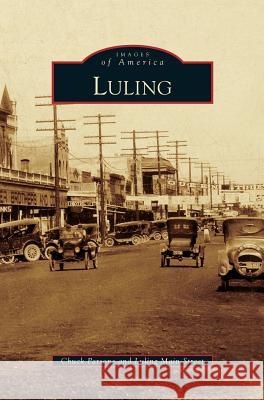Luling » książka
Luling
ISBN-13: 9781531646882 / Angielski / Twarda / 2009 / 130 str.
One historian described Luling in the 1870s as "the toughest town in Texas." Along with the railroad came notorious gamblers who were ready to take a man's hard-earned money any way they could. But when settlers enforced what laws there were and established permanent homes, churches, and a school, the rougher crowd sought greener pastures. In the southern corner of Caldwell County, Luling had at first an agrarian-based economy, but that changed with the discovery of oil, which boosted the population from a few hundred residents to several thousand. The oil industry and related businesses kept the population steady. Luling soil also proved beneficial to crops such as cotton, but the area's prize crop became watermelons. Today oil and watermelons keep Luling on the map, and the annual Watermelon Thump attracts thousands. At the crossroads of three important highways, businesses flourish, especially barbecue, which is considered by some to be the best in the state.
One historian described Luling in the 1870s as "the toughest town in Texas." Along with the railroad came notorious gamblers who were ready to take a mans hard-earned money any way they could. But when settlers enforced what laws there were and established permanent homes, churches, and a school, the rougher crowd sought greener pastures. In the southern corner of Caldwell County, Luling had at first an agrarian-based economy, but that changed with the discovery of oil, which boosted the population from a few hundred residents to several thousand. The oil industry and related businesses kept the population steady. Luling soil also proved beneficial to crops such as cotton, but the areas prize crop became watermelons. Today oil and watermelons keep Luling on the map, and the annual Watermelon Thump attracts thousands. At the crossroads of three important highways, businesses flourish, especially barbecue, which is considered by some to be the best in the state.











